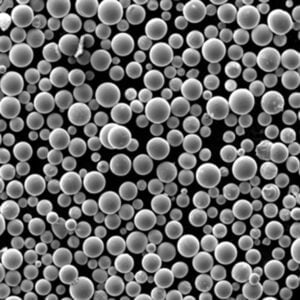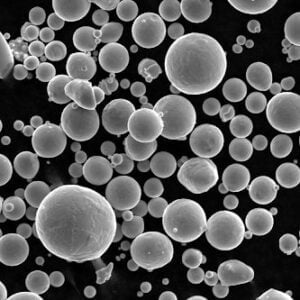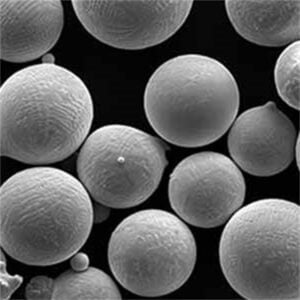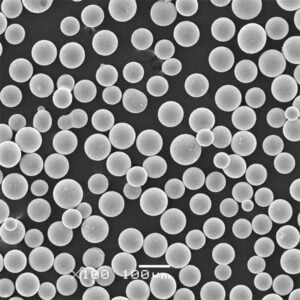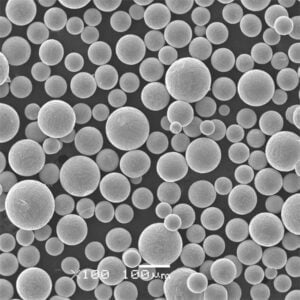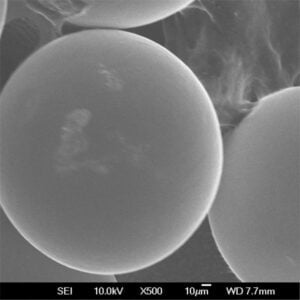Leverantörer av titanpulver
Innehållsförteckning
Titanpulver är ett mångsidigt metallpulver med unika egenskaper som gör det till ett viktigt material för många applikationer. Den här artikeln ger en översikt över titanpulver, dess egenskaper, produktionsmetoder, tillämpningar och ledande globala leverantörer.
Översikt över titanpulver
Titanpulver är sammansatt av fina titanpartiklar som används för att tillverka delar, beläggningar och tillsatser. Viktiga egenskaper inkluderar:
- Högt förhållande mellan styrka och vikt
- Korrosionsbeständighet
- Biokompatibilitet
- Hög smältpunkt
- Låg densitet
- Hållbarhet vid höga temperaturer
Titanpulver finns i olika renhetsgrader, partikelstorlekar och morfologier för att passa olika produktionsprocesser och slutanvändningskrav.
De vanligaste tillverkningsmetoderna för titanpulver är gasatomisering och plasmasfäroidisering. Leverantörer erbjuder både råa titanpulver såväl som sfäroidiserade, legerade och plasmarenade kvaliteter.
Titanpulvertyper
| Typ | Beskrivning | Tillämpningar |
|---|---|---|
| Ren titan | 99,5-99,9% titaninnehåll | Flyg-, medicin-, konsumentprodukter |
| Ti-6Al-4V | Titan + 6% aluminium + 4% vanadin | Flyg, bil, implantat |
| Ti64 | En alternativ beteckning för Ti-6Al-4V | Flyg, bil, implantat |
| Ti-6Al-7Nb | Titan + 6% aluminium + 7% niob | Flyg- och rymdindustrin, medicinteknik |
| Andra titanlegeringar | Olika kompositioner möjliga | Specialapplikationer |
Titanpulver egenskaper
| Karaktäristisk | Detaljer | Betydelse |
|---|---|---|
| Partikelstorlek | Spännvidd från 10-250 mikron | Bestämmer lämplighet för additiv tillverkning eller pressningstillämpningar |
| Morfologi | Kan vara oregelbunden, kantig eller sfärisk | Sfäroida pulver har bättre flytbarhet |
| Renhet | Betyg från CP1 till CP4 baserat på syre, kväve, kolnivåer | Högre renhetsgrader krävs för mer krävande applikationer |
| Legeringens sammansättning | Varierar beroende på aluminium, vanadin, annat legeringsinnehåll | Legeringselement förbättrar styrkan och modifierar egenskaperna |
| Produktionsmetod | Gasatomiserad, plasmarenad, hydrid-dehydrid | Påverkar partikelegenskaper som storleksfördelning, form, renhet |
Specifikationer för titanpulver
| Parameter | Räckvidd |
|---|---|
| Partikelstorlek | 10-150 mikron typiskt |
| Syrehalt | <0,20% för grad 1 titan |
| Kväveinnehåll | <0,03% för grad 1 titan |
| Kolinnehåll | <0,08% för grad 1 titan |
| Tappdensitet | 2,2-3,8 g/cc |
| Skenbar densitet | >92% av absolut densitet |
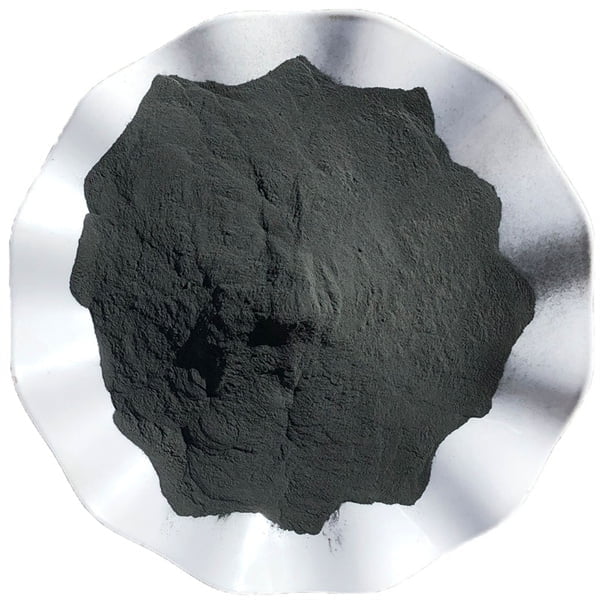
Tillämpningar av Titanpulver
| Industri | Tillämpning | Fastigheter med hävstångseffekt | Fördelar | Utmaningar |
|---|---|---|---|---|
| Flyg- och rymdindustrin | – Flygplanskroppar och vingar – Landningsställskomponenter – Motordelar (kompressorblad, skivor) | Högt hållfasthet-till-viktförhållande, utmärkt utmattningsbeständighet, korrosionsbeständighet | – Lättare flygplan för ökad bränsleeffektivitet och räckvidd – Förbättrad prestanda och hållbarhet i tuffa miljöer | – Hög kostnad för titanpulver – Kräver specialiserad utrustning och expertis för additiv tillverkning |
| Fordon | – Högpresterande vevstakar – Lättviktsupphängningskomponenter – Bromssystem | Hög hållfasthet i förhållande till vikt, bra slitstyrka | – Förbättrad fordonshantering och bränsleekonomi – Minskad vikt för övergripande prestandavinster | – Behov av efterbearbetningstekniker för att uppnå önskad ytfinish – Begränsade produktionsvolymer på grund av kostnadsskäl |
| Medicin & tandvård | – Implantat (knä, höft, dentala) – Lemmproteser och kranialimplantat | Biokompatibilitet, Osseointegration (förmåga att binda till ben), Korrosionsbeständighet | – Förbättrade patientresultat och långsiktig implantatframgång – Biokompatibelt material minimerar avstötningsrisker | – Strikta myndighetskrav för biokompatibilitetstestning – Potentiell för höga kostnader förknippade med implantat |
| Konsumentvaror | – High-end cyklar och sportartiklar – Lyxiga klockor och smycken | Högt hållfasthet-till-viktförhållande, korrosionsbeständighet, estetiskt tilltalande | – Produkter med exceptionell styrka och hållbarhet – Lättviktsdesign för komfort och prestanda | – Begränsade tillämpningar på grund av höga kostnader – Potentiella säkerhetsproblem om de inte tillverkas korrekt |
| Additiv tillverkning | – Komplexa komponenter i nästan nätform inom olika branscher | Designflexibilitet, Materialeffektivitet, Minskat avfall | – Möjliggör skapandet av intrikata mönster som inte är möjliga med traditionella metoder – Minimerar materialspill jämfört med subtraktiv tillverkning | – Kräver noggrant pulverval och processkontroll för optimala resultat – Potential för ytjämnhet beroende på tryckteknik |
| Nya tillämpningar | – Biomedicinska ställningar för vävnadsteknik – Filtreringsmembran – Kemisk processutrustning | Biokompatibilitet, Korrosionsbeständighet, Hög hållfasthet | – Potential för framsteg inom regenerativ medicin – Effektiv filtrering med utmärkt hållbarhet – Lätt och korrosionsbeständig utrustning för tuffa miljöer | – Forsknings- och utvecklingsstadiet för vissa applikationer – Skalbarhet och kostnadsminskning krävs för en bredare användning |
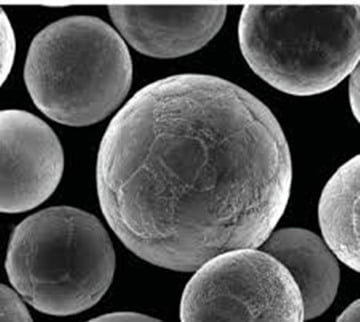
Globala titanpulverleverantörer
| Leverantör | Huvudkontor | Årlig produktionskapacitet (ton) | Produktionsmetoder | Viktiga produkter | Tillämpningar | Certifieringar |
|---|---|---|---|---|---|---|
| ATI Powder Metals (USA) | Ormstown, Quebec, Kanada | 5,000 | Hydrid-dehydrid (HDH) | CP Titan, Ti-6Al-4V, Ti-6Al-7Nb | Additiv tillverkning, metallformsprutning, pulvermetallurgi | AS9100, ISO 9001, Nadcap |
| AP&C (Kanada) | Montreal, Quebec, Kanada | 75,000 | HDH | CP titan, nästan sfäriska titanpulver, titanlegeringar (Ti-6Al-4V, Ti-6Al-7Nb) | Additiv tillverkning, metallformsprutning, pulvermetallurgi | AS9100, ISO 9001, Nadcap |
| Dow Titanium (USA/Europa) | Midland, Michigan, USA & Chateaubriand, Frankrike | 30,000 | Natriumreduktion, HDH | CP Titan, Titanlegeringar (Ti-6Al-4V, Ti-4Al-3Mo-1V) | Additiv tillverkning, metallformsprutning, pulvermetallurgi | AS9100, ISO 9001, Nadcap |
| Norsk Titanium (Norge) | Kristiansand, Norge | 4,500 | Plasmaatomisering | CP Titan, Titanlegeringar (Ti-6Al-4V, Ti-5Al-2.5Sn) | Additiv tillverkning, flygkomponenter | AS9100, ISO 9001, Nadcap |
| OSAKA Titanium Technologies (Japan) | Osaka, Japan | 5,000 | HDH, Elektronstrålesmältning | CP Titan, Titanium legeringar (Ti-6Al-4V, Ti-17) | Additiv tillverkning, medicinska implantat | ISO 9001 |
| Praxair Surface Technologies ( Francji) | Saint-Priest, Frankrike | 2,000 | Plasmaatomisering | Titanlegeringar (Ti-6Al-4V, Ti-2Al-4Nb) | Additiv tillverkning, termiska spraybeläggningar | AS9100, ISO 9001 |
| Schunk Group (Tyskland) | Heuchelheim, Tyskland | 1,200 | Atomisering av gas | Titanlegeringar (Ti-6Al-4V, Ti-2Al-4Nb) | Additiv tillverkning, medicinska implantat | ISO 9001, ISO 13485 |
| Shaanxi TMT Titanium Industry Co. Ltd (Kina) | Baoji, Kina | Kapacitet okänd | Olika metoder (HDH, Plasma Atomization) | CP Titanium, Titanium legeringar | Flyg-, kemisk bearbetningsutrustning | AS9100, ISO 9001 |
| Sumitomo Metal Industries Ltd (Japan) | Osaka, Japan | Kapacitet okänd | Sponge Crush & Milling | CP Titanium, Titanium legeringar | Pulvermetallurgi | ISO 9001 |
| Tekna (Kanada) | Sherbrooke, Quebec, Kanada | 1,000 | Plasmaatomisering | CP titan, titanlegeringar (Ti-6Al-4V, Ti-6Al-7Nb) | Additiv tillverkning, medicinska implantat | AS9100, ISO 9001, Nadcap |
Titan kontra alternativa pulver
| Funktion | Titan | Alternativa pulver |
|---|---|---|
| Mekaniska egenskaper | Utmärkt styrka-till-vikt-förhållande, hög utmattningshållfasthet, bra korrosionsbeständighet | Egenskaperna varierar beroende på material. Exempel: Rostfritt stål ger bra hållfasthet och korrosionsbeständighet, men tyngre än titan; Aluminium erbjuder lätta egenskaper men med lägre hållfasthet; Nickellegeringar har hög temperaturprestanda men kan vara dyra. |
| Biokompatibilitet | Ej giftig och biokompatibel, idealisk för medicinska implantat | Biokompatibiliteten varierar. Rostfritt stål är i allmänhet biokompatibelt för vissa implantat, men vissa kvaliteter kan kräva ytterligare ytbehandlingar. Aluminium är inte biokompatibelt och kan korrodera i kroppen. Nickellegeringar kan vara biokompatibla men vissa kvaliteter kan orsaka allergiska reaktioner. |
| Pulveregenskaper | Hög smältpunkt kräver specialiserade trycktekniker, flytbarhet kan vara ett problem för vissa pulvertyper | Smältpunkterna varierar. Stål och nickellegeringar har ofta lägre smältpunkter än titan, vilket gör dem lättare att skriva ut. Dessa pulver kan dock vara mer mottagliga för oxidation under tryckning. Aluminiumpulver är mycket reaktiva och kräver inerta tryckmiljöer. |
| Kostnad | Relativt dyrt på grund av komplexa produktionsprocesser | Kostnaderna varierar beroende på material. Stålpulver är generellt sett billigare än titan, medan aluminiumpulver är ännu billigare. Nickellegeringar kan vara ganska dyra, beroende på den specifika sammansättningen. |
| Tillämpningar | Flyg-, biomedicinska, fordons-, sportartiklar (på grund av dess höga styrka-till-vikt-förhållande) | Olika tillämpningar beroende på material. Rostfritt stål används flitigt i olika industrier på grund av dess goda balans av egenskaper. Aluminium är vanligt i flyg- och biltillämpningar på grund av dess lätta natur. Nickellegeringar används i högtemperaturmiljöer som jetmotorer och kraftverk. |
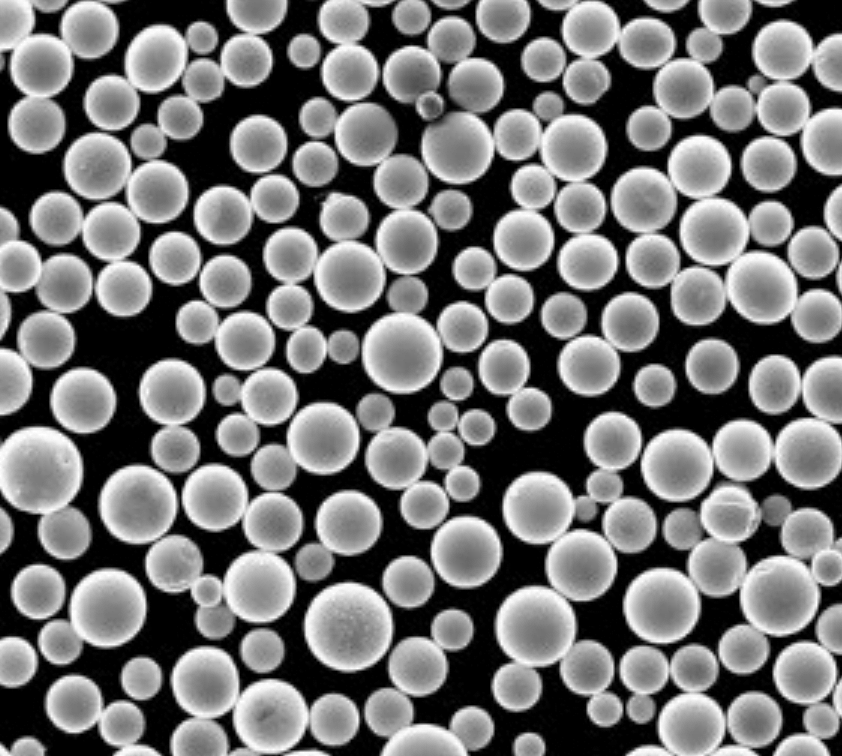
Att välja en Titanpulver Leverantör
Nyckelfaktorer för att välja en titanpulverleverantör:
| Övervägande | Detaljer att utforska | Inverkan på ditt projekt |
|---|---|---|
| Egenskaper för pulver | * Betyg: CP (kommersiellt ren) titan eller titanlegeringar (t.ex. Ti-6Al-4V, Ti-6Al-7Nb) * Partikelstorlek och distribution: Påverkar flytbarhet, densitet och tryckbarhet. * Morfologi: Sfäriska former ger bättre flöde och packning. * Kemi och föroreningsnivåer: Syre-, kväve- och kolinnehåll påverkar avsevärt de mekaniska egenskaperna. | Påverkar direkt slutproduktens styrka, korrosionsbeständighet, biokompatibilitet och tryckbarhet. Felaktiga egenskaper kan leda till delfel. |
| Leverantörens kapacitet | * Produktionsmetod: Gas Atomization (GA) eller Plasma Atomization (PA) påverkar pulverkvaliteten avsevärt. * Kvalitetskontroll och certifieringar: Leta efter AS9100 eller ISO 13485 för flyg- eller medicinska tillämpningar. * Anpassad pulverutveckling: Förmåga att skräddarsy fastigheter för specifika behov. * Minsta orderkvantitet (MOQ): Säkerställ anpassning till din produktionsvolym. | Leverantörens expertis och certifieringar säkerställer konsekvent, högkvalitativt pulver som uppfyller industristandarder. Anpassning möjliggör optimerad prestanda. |
| Teknisk support och service | * Materialdatablad (MDS): Detaljerad information om kemisk sammansättning, partikelstorleksfördelning och mekaniska egenskaper. * Applikationsexpertis: Leverantörens kunskap om din specifika tillämpning (t.ex. AM, pulvermetallurgi) är avgörande. * Support efter försäljning: Felsökningshjälp och teknisk vägledning är värdefulla resurser. | Tillgång till omfattande data och leverantörskunskap ger välgrundat beslutsfattande och framgångsrikt projektgenomförande. |
| Prissättning & ledtider | * Kostnad per kilogram (kg): Tänk på den totala projektkostnaden, inte bara förhandsmaterialpriset. * Volymrabatter: Förhandla för större beställningar. * Ledtider: Produktionskapacitet och leveranstidsplaner bör överensstämma med ditt projektschema. | Att hitta en balans mellan kostnad, tillgänglighet och aktualitet är avgörande för projektbudget och produktionsflöde. |
| Leverantörens rykte och pålitlighet | * Branschernas erkännande och referenser: Positivt rykte och beprövad meritlista med liknande projekt inger förtroende. * Finansiell stabilitet: Leverantörens finansiella hälsa säkerställer långsiktig säkerhet i leveranskedjan. * Miljö- och säkerhetspraxis: Att anpassa sig till ditt företags hållbarhetsmål är ett plus. | Att välja en ansedd och pålitlig leverantör minimerar riskerna förknippade med produktkvalitet, leveransförseningar och potentiella störningar. |
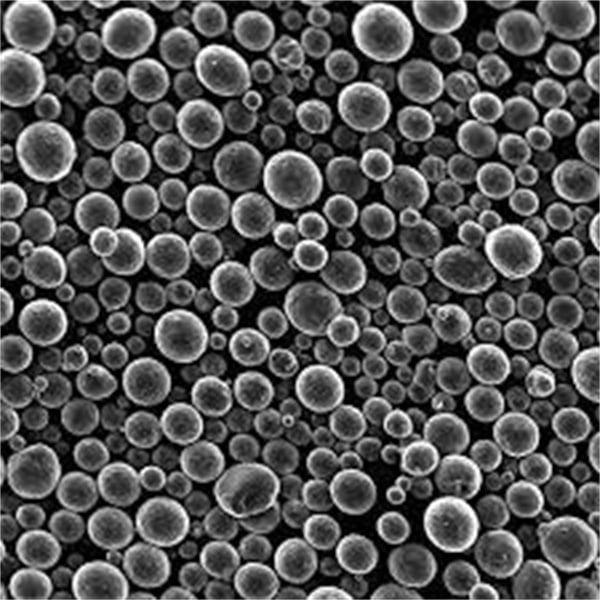
VANLIGA FRÅGOR
F: Vad är skillnaden mellan kommersiellt rent titan kontra titanlegeringspulver?
S: Kommersiellt rent titanpulver har 99,5-99,9% titanhalt med lågt syre, kväve och kol. Titanlegeringspulver som Ti-6Al-4V innehåller aluminium, vanadin eller andra element för att förbättra egenskaper som styrka.
F: Vilken partikelstorlek titanpulver är optimal?
S: För pressning och sintring är 75-150 mikron vanligt. För additiva tillverkningsprocesser är finare 15-45 mikron pulver att föredra för att uppnå bra upplösning.
F: Kräver titanpulver särskilda försiktighetsåtgärder?
S: Ja, titanpartiklar är brandfarliga och skapar explosionsrisk. Inertgasfilt och korrekt jordning används. Vattenkontakt orsakar väteabsorptionsproblem.
F: Hur avgör man vilken titankvalitet som är bäst för min applikation?
S: Rådgör nära med potentiella leverantörer om tekniska krav. Ti-6Al-4V är den vanligaste kvaliteten men andra som Ti-6Al-7Nb passar specifika behov. Få testprover för att utvärdera prestanda.
F: Vilka metoder kan producera titanpulver lämpligt för 3D-utskrift?
S: Gasatomisering och plasmasfäroidisering skapar fina sfäriska titanpulver som är optimala för additiv tillverkning. Hydrid-dehydrid och mekaniska malningsmetoder ger också tryckbart pulver.
F: Vilken efterbearbetning krävs på additivt tillverkade titandelar?
S: Varmisostatisk pressning (HIP) hjälper till att eliminera porositet i tryckta delar. Ytterligare värmebehandlingar, ytbehandling och bearbetning kan behövas beroende på slutliga egenskaper och toleranser som krävs.
Dela på
MET3DP Technology Co, LTD är en ledande leverantör av lösningar för additiv tillverkning med huvudkontor i Qingdao, Kina. Vårt företag är specialiserat på 3D-utskriftsutrustning och högpresterande metallpulver för industriella tillämpningar.
Förfrågan för att få bästa pris och anpassad lösning för ditt företag!
Relaterade artiklar

Högpresterande segment för munstycksvingar: Revolutionerande turbineffektivitet med 3D-utskrift i metall
Läs mer "Om Met3DP
Senaste uppdateringen
Vår produkt
KONTAKTA OSS
Har du några frågor? Skicka oss meddelande nu! Vi kommer att betjäna din begäran med ett helt team efter att ha fått ditt meddelande.

Metallpulver för 3D-printing och additiv tillverkning
FÖRETAG
PRODUKT
cONTACT INFO
- Qingdao City, Shandong, Kina
- [email protected]
- [email protected]
- +86 19116340731






